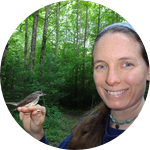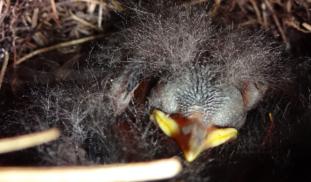Please wait...
About This Project
An invasive insect, the Hemlock Woolly Adelgid (HWA), is causing Eastern Hemlock tree decline in the Appalachian Mountains. The Louisiana Waterthrush (LOWA) is a bird that may indicate the degree to which HWA threatens riparian ecosystems with declining hemlock. By studying LOWA habitat use and reproductive success, I aim to determine how hemlock decline affects the birds and riparian ecosystem condition. Such knowledge is important for conserving the rich biodiversity of the Appalachians.
More Lab Notes From This Project

Browse Other Projects on Experiment
Related Projects
Wormfree World - Finding New Cures
Hookworms affect the lives of more than 400,000,000 men, women and children around the world. The most effective...
Viral Causes of Lung Cancer
We have special access to blood specimens collected from more than 9,000 cancer free people. These individuals...
Cannibalism in Giant Tyrannosaurs
This is the key question we hope to answer with this study. This project is to fund research into a skull...








